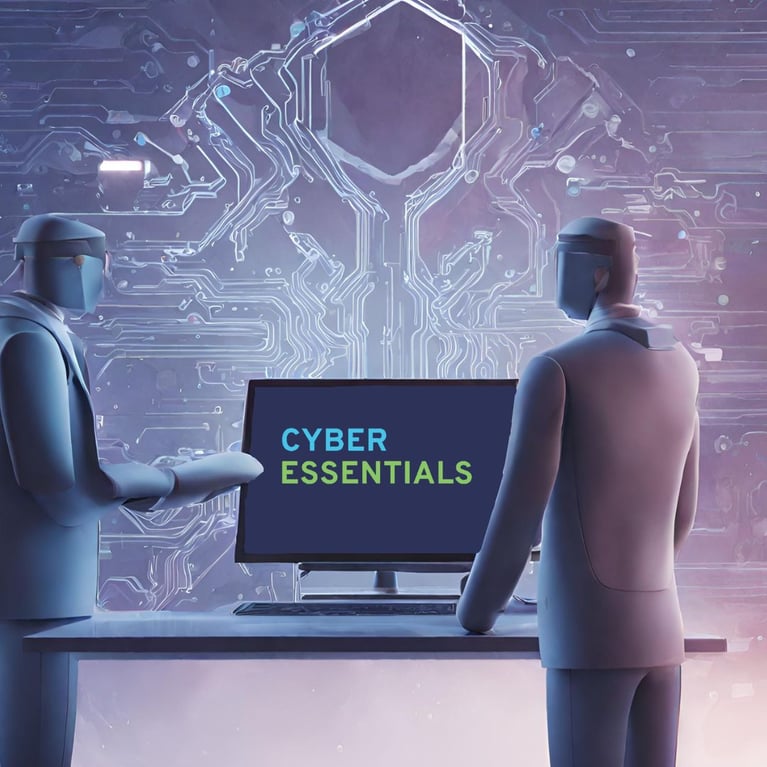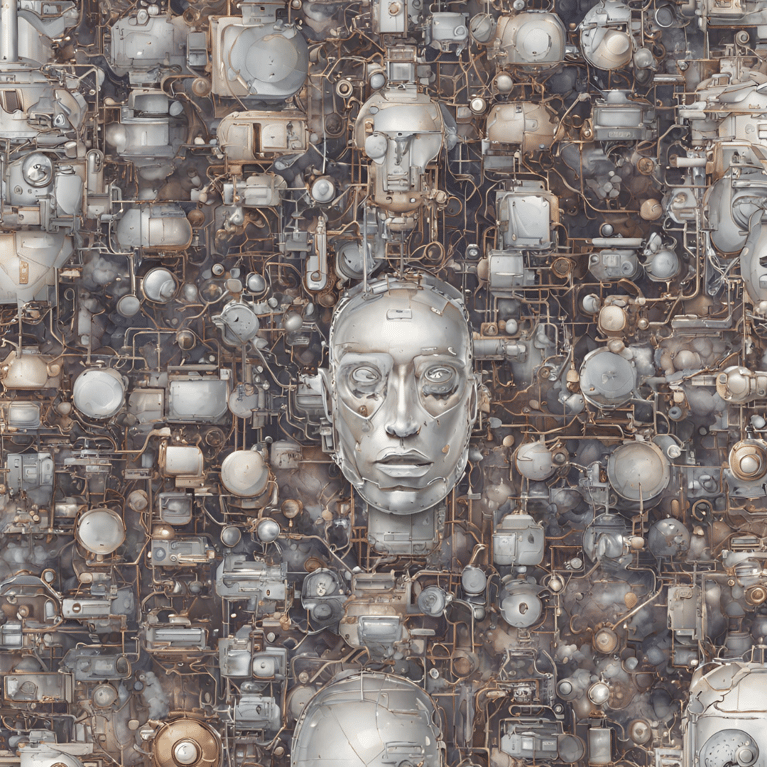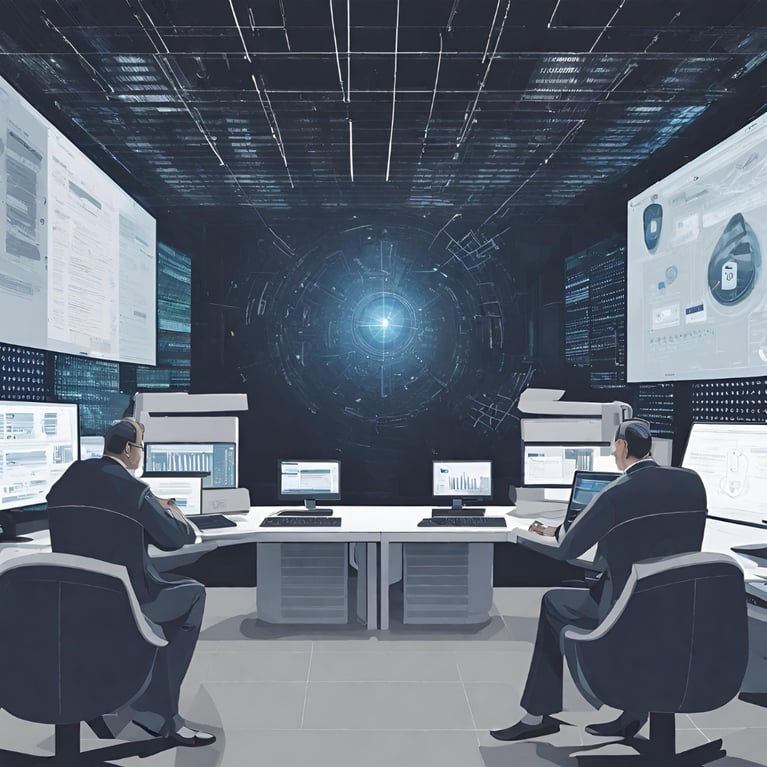As we enter the new year, businesses are looking for ways to stay ahead of the curve and stay competitive in an ever-evolving market. As an IT managed service provider, we have a unique perspective on the trends that are shaping the industry and what to do to help small businesses accelerate in the coming year. The rise of Digital Transformation has been steadily growing over the past few years, and it shows no sign of slowing down. For SMEs in particular, being prepared for the new technology trends of 2023 is essential for success and growth. In this article, I will discuss the most important tech trends that you should be ready for in 2023.
2022 has seen many technology trends become household terms; cryptocurrencies, blockchain, virtual reality and the metaverse are regularly heard being talked about outside of technical circles. Many business leaders are embracing new technology and leveraging automation as well as cloud computing for their small businesses, and this is going to increase into 2023. The increased costs of running a business will mean a push to drive more efficiencies by using emerging technologies to create new ways of working. Connectivity will play an ever increasing role in the way we all do business, remote working relies upon ever increasing internet speeds, so 5G will be crucial for hybrid working and maintaining access to our digital world.
Inflection Point has been at the cutting edge of digital technologies for a long time, and we are always testing the latest technology trends as part of our digital transformation initiatives. Whether it is deploying StarLink internet for a rural customer site, or working with Gartner to review which trends in 2023 to focus upon, we are at the forefront of technology innovation.
Remote Working
Remote working has been here for a while now, but many small businesses are yet to fully embrace it. More and more companies are making the switch to remote working, so it’s no surprise that this new way of doing business has become a major topic of conversation. Remote working is becoming increasingly popular as businesses strive to keep their employees happy and from looking at jumping ship. "The Great Resignation" still strikes fear in the heart of many small and medium sized business owners, so providing more flexible working is one way to help employees get more from staying where they are.
Once a business embraces this change the benefits of remote working are numerous, with its supporters pointing out that people can work from any location with an internet connection. It also opens up opportunities for hybrid-working models which allow different departments and teams to collaborate in real-time from different locations. This can be enabled through Virtual Private Networks (VPNs) and cloud computing services, both of which provide secure access to corporate networks or documents stored in the cloud.
This does open up some potential negatives though, Hybrid Working does tend to shift the hours in which some people work. Remote workers do tend to change from the typical 9 to 5 and instead some begin to start work earlier, or opt to work later into the evening, freeing up blocks of time in their day to be their for their family.
We have seen this accelerate a need for us to move to a 247 model for our support services, so that we can be their when our customers need us. Out of hours support used to be in emergencies only, but they have now become the norm. At Inflection Point I have taken the decision to move our support desk to a full 247, 365 operation so that we are there when our customers need us.
Sustainable Technology
As the tech world continues to advance, it's no surprise that sustainability will become more prevalent in 2023. Sustainable technology is all about creating and using products that are as eco-friendly as possible. This includes everything from energy efficient appliances and lightbulbs to renewable solar energy sources. It's all part of the growing movement to reduce our environmental impact, and we're seeing more companies make sustainability a priority in their business plans as they move to new energy solutions.
New Energy Solutions
Renewable energy sources like solar panels or wind turbines can provide an alternative source of electricity, while water conservation systems help reduce water waste. Even small lifestyle changes, such as switching to LED light bulbs or buying recycled materials for home improvement projects can have a big impact on reducing our carbon footprint. Our manufacturing customers are looking for ways to reduce their energy costs and become less reliant on the grid, so solar is an easy choice.
At Inflection Point we do our bit by planting a tree every time a customer gives us a Customer Satisfaction score. Every time a customer closes a ticket they receive an opportunity to give us a score, by using process automation this automatically plants a tree using our sustainability partner, Ecologi.
We are also installing solar panels to offset the electricity we use.
Artificial Intelligence
Artificial Intelligence (AI) is transforming the way businesses operate and interact with their customers. It's no surprise that AI has become a powerful tool for streamlining business processes, enhancing customer engagement and driving innovation. With its ability to automate mundane tasks (such as planting a tree for every CSAT score we receive), AI can help companies take advantage of new opportunities and increase efficiency. Artificial Intelligence will become far more integrated into our lives, and AI technology like ChatGPT will revolutionise Customer Services by automating business processes such as interpreting applications and providing customer support.
What is ChatGPT, and why does it matter?
Automation - Chatbots for Customer Service Support
What is Machine Learning, and how does it work?
Robotic Process Automation (RPA)
Machine learning technology is the backbone of AI applications, allowing for more sophisticated decision-making capabilities than ever before. From recognising faces and objects to natural language processing, machine learning helps to create a smart environment that can respond quickly and accurately to various user input. Additionally, Robotic Process Automation (RPA) allows businesses to automate repetitive tasks such as data entry or customer service interactions. By automating many tedious processes, RPA frees up employees’ time for more important work like developing strategies or engaging with customers.
This is an area we are invested heavily in and our Digital Innovation workshops can help you find new ways to leverage this technology within your own business.
Blockchain and Cryptocurrencies
Cyber Security
Recent Posts
-
 Top 10 Winter Tech Tips: Protecting Your Devices and Data in the Cold
Top 10 Winter Tech Tips: Protecting Your Devices and Data in the Cold -
 Navigating the World of Compliance: GDPR, Cyber Essentials, and Beyond
Navigating the World of Compliance: GDPR, Cyber Essentials, and Beyond -
 DNSFilter: Revolutionising Cybersecurity for Modern Businesses
DNSFilter: Revolutionising Cybersecurity for Modern Businesses -
 Top 10 Festive Season Scams: Safeguarding Your Business Against Seasonal Cyber Threats
Top 10 Festive Season Scams: Safeguarding Your Business Against Seasonal Cyber Threats -
 Embracing Next-Generation Cybersecurity with SentinelOne: A Deep Dive for Modern Businesses
Embracing Next-Generation Cybersecurity with SentinelOne: A Deep Dive for Modern Businesses
